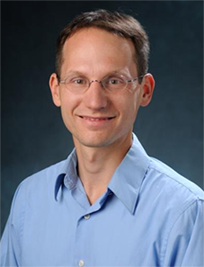Romatschke receives $750,000 Department of Energy early career award
Assistant Professor Paul Romatschke of the University of Colorado Boulder physics department will receive a five-year, $750,000 grant as part of the U.S. Department of Energy’s Early Career Research Program created to bolster the nation’s scientific workforce with top young researchers.
Romatschke was among 68 winners selected nationwide from a pool of 850 applicants from universities and national laboratories. His proposal involves using a recent development in string theory to create a dynamic model for interactions that occur just after the collision of two heavy ion particles during experiments at the Relativistic Heavy-Ion Collider and the Large Hadron Collider. The results will help to eliminate many unknowns in current hydrodynamic models of experimental data from the RHIC and the LHC.
Romatschke also won a 2012 Alfred P. Sloan Fellowship for $50,000 in February to pursue research in relativistic fluid dynamics and its application to high-energy nuclear physics. Assistant Professor Robin Dowell of the molecular, cellular and developmental biology department and the BioFrontiers Institute also received a Sloan Fellowship this year.
“Assistant Professor Romatschke joins 17 other CU-Boulder physics faculty members who have won early career, young investigator and other junior faculty awards since 2000,” said physics department Chair Paul Beale. “These outstanding young faculty members are quickly becoming international leaders in their research fields.”
The seven previous DOE Early Career Research Program awardees at CU-Boulder were Alireza Doostan of the aerospace engineering sciences department; Alexis Templeton of the geological sciences department; Arthi Jayaraman of the department of chemical and biological engineering; and Minhyea Lee, Michael Hermele, Alysia Marino and Tobin Munsat of the department of physics.
For a complete list of this year’s DOE awardees go to http://science.energy.gov/early-career.


